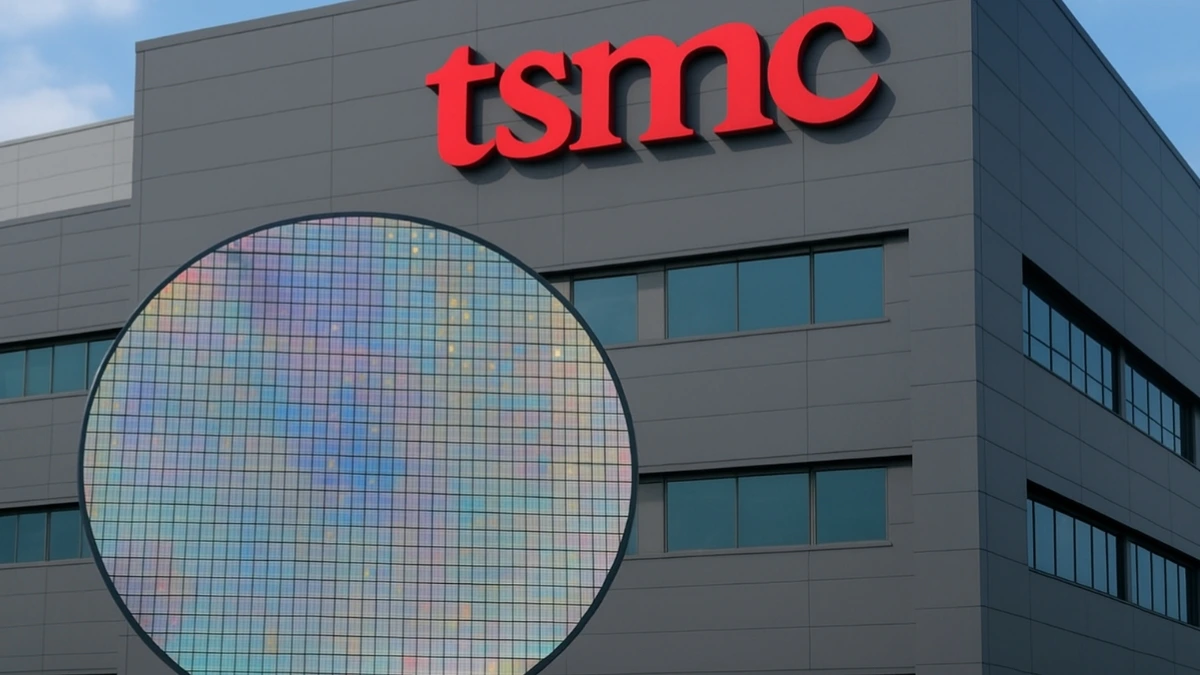TAIPEI, Taiwan — Taiwan Semiconductor Manufacturing Co. (TSMC) reported a nearly 40% jump in net profit for the July September quarter, propelled by the surging global demand for artificial intelligence chips and resilient semiconductor sales to major clients including Apple and Nvidia.
The company, the world’s largest contract chipmaker, posted a record net profit of 452.3 billion New Taiwan dollars ($15 billion), exceeding market expectations. Revenue climbed 30% year over year, according to the company’s statement Thursday.
TSMC, which dominates the global foundry market with over 50% share, has become the backbone of the world’s technology supply chain.
Its advanced chips power a wide range of products from smartphones and high performance computers to generative AI models driving the current wave of artificial intelligence.
The company’s financial performance underscores how the AI boom is reshaping the semiconductor industry. With chip hungry data centers and AI model training requiring massive processing power, demand for TSMC’s advanced 3 nanometer and 5 nanometer chips has skyrocketed.
To mitigate geopolitical risks and strengthen supply chain resilience, TSMC has been expanding its global manufacturing footprint beyond Taiwan.
The firm is investing $100 billion in new facilities in Arizona and Japan, in addition to $65 billion already pledged. These moves come amid heightened US China tensions and Washington’s push to localize more semiconductor production.
“TSMC’s dominance in advanced chip manufacturing has positioned it as an indispensable player in the global AI ecosystem,” said Mark Liu, a technology analyst at Horizon Intelligence in Taipei.
“Its revenue trajectory reflects the intensity of AI driven demand, especially from companies developing large language models and next generation GPUs.”
Morningstar analysts noted in a recent report that the chipmaker’s “unyielding demand” and global reach would allow it to weather potential tariffs or trade disruptions.
“Given TSMC’s leadership in process technology, we doubt the company would be hindered even if new trade barriers emerged,” the report said.
However, some experts cautioned that the concentration of chip manufacturing in Taiwan remains a strategic vulnerability.
“Any major disruption whether geopolitical or natural could have cascading effects on global technology supply chains,” said Dr. Elaine Cheng, an economist at the Asia Pacific Policy Institute.
TSMC’s 40% profit increase contrasts sharply with the broader semiconductor industry, where many firms are still recovering from last year’s cyclical downturn.
Global chip sales fell nearly 10% in 2023, according to the Semiconductor Industry Association, but are expected to rebound strongly in 2025, driven by AI and automotive demand.
The company’s third quarter revenue totaled 625.5 billion New Taiwan dollars ($20.8 billion), up from 480 billion in the same period last year. Its profit margin remained robust at 72%, underscoring the premium nature of its technology and customer base.
By comparison, rivals such as Samsung Electronics and Intel have struggled to keep pace with TSMC’s technological advancements. While Intel is investing heavily in its foundry services, it remains several years behind in cutting edge process nodes.
In Taipei’s Neihu Technology Park, where many of TSMC’s suppliers operate, optimism about the AI driven semiconductor boom runs high.
“Every supplier is feeling the momentum,” said Alex Wu, a local precision equipment engineer whose firm provides machinery components for TSMC. “AI is not just boosting chip demand; it’s lifting the entire industrial ecosystem around semiconductors.”
Yet, some local residents expressed mixed feelings about TSMC’s rapid growth and overseas expansion. “We’re proud that Taiwan leads the world in chipmaking,” said Hsin Yu Lee, a small business owner in Hsinchu near TSMC’s main plant.
But people are also worried that too much investment abroad could shift jobs and innovation away from Taiwan. Looking ahead, analysts expect TSMC’s earnings momentum to continue into 2025, fueled by persistent demand from AI data centers and next generation devices.
The company has projected that AI related chips will account for more than 15% of its total revenue next year, up from just 6% two years ago.
Still, challenges loom. US Commerce Secretary Howard Lutnick’s proposal last month to split global chip production evenly between the United States and Taiwan met firm resistance from Taipei, which currently handles over 60% of global chip output.
“Diversifying production makes sense strategically, but Taiwan will remain the heart of advanced chip manufacturing for the foreseeable future,” said Dr. Cheng. “It’s not easy to replicate TSMC’s precision, talent, and ecosystem elsewhere overnight.”
As the world’s appetite for artificial intelligence accelerates, TSMC stands at the center of a technological and geopolitical balancing act driving profits to record highs while navigating global pressures for supply chain diversification.
Its record earnings underscore a simple reality in the race to power the AI revolution, every digital future still runs through Taiwan’s silicon heart.
